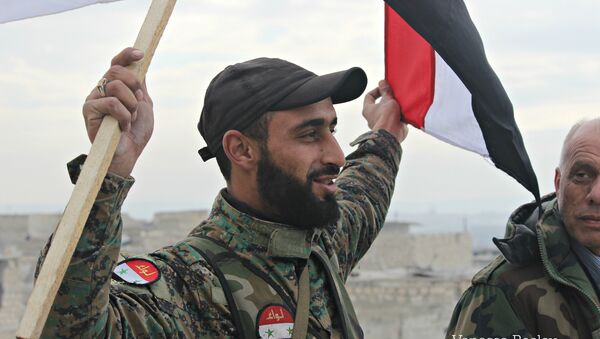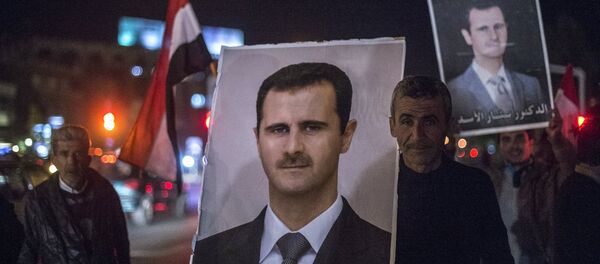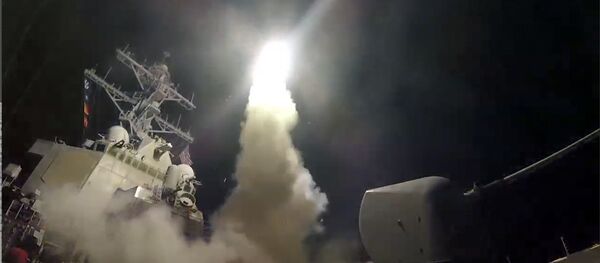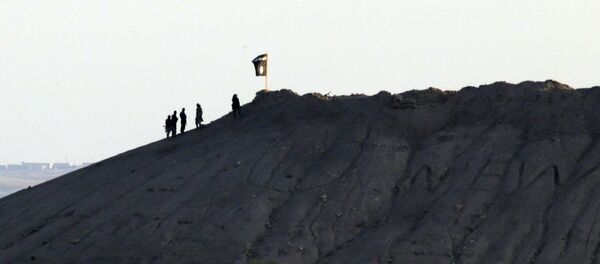The Syrian Arab Army has completely liberated the province of Aleppo from Daesh terrorists, according to General Samir Suleiman, the deputy head of the information department at the Syrian Arab Republic's Defense Ministry.
"The Syrian [Arab] Army has liberated the whole territory of Aleppo," General Suleiman said in an interview with RT.
Earlier, on Friday, Russian Minister of Defense held a teleconference with the leadership of the Russian Armed Forces concerning the recent developments in Syria.
"In the last month the Syrian government forces and [pro-government] militia backed by the Russian Aerospace forces has made progress in the north-east of the province of Aleppo, near Palmyra and in the south of Syria. Sixty-nine settlements and 12177 square kilometers of the territory were liberated from insurgents in June only," Shoigu stressed.
Furthermore, the Russian minister of defense pointed out that up to 228 armed opposition groups had already inked reconciliation agreements while the total number of inhabited areas which joined the ceasefire regime had reached 1,864.
In addition, he called attention to the fact that the number of violations of the ceasefire regime has reduced more than twice after the signing of Memorandum on the creation of de-escalation areas in the Syrian Arab Republic signed in May by the Islamic Republic of Iran, the Russian Federation and the Republic of Turkey as guarantors of the truce.
Meanwhile, the Syrian city of Aleppo, which was liberated from terrorists back in April, is returning to normal life with its residential quarters and social infrastructure being restored.
It was also reported that the construction of a modern nine-story hospital has begun in the eastern part of the city.
According to the estimates by the United Nations High Commissioner for Refugees, nearly half a million internally displaced Syrians have returned to their homes so far this year, with 31,000 having returned from neighboring countries.
"Aid agencies estimate that more than 440,000 internally displaced people have returned to their homes in Syria during the first six months of this year. In parallel, UNHCR has monitored over 31,000 Syrian refugees returning from neighboring countries so far in 2017," the UN refugee agency reported Friday.
The UNHCR admitted that most returned to Aleppo, Hama, Homs and Damascus due to the improved security situation in these parts of the country.
Although the activity of returnees coincided with the Russo-Iranian-Turkish efforts to maintain the ceasefire regime in the region, UNHCR spokesman Andrej Mahecic claimed that "it was premature to say whether de-escalation zones set up via talks held by Russia, Iran and Turkey in Astana or UN-led peace talks in Geneva had accelerated the return trend," as Reuters reported.
Still, citing the recent UNHCR survey, Mahecic highlighted that that more than 80 percent of Syrian refugees expressed their wish to return home in the long run.
On Friday Shoigu signaled that Russia, Turkey and Iran will soon finalize documentation on the borders of de-escalation zones in Syria and their management.
"Currently, together with Iran and Turkey, we are finalizing the documents defining the boundaries of de-escalation zones, their control and operation procedure," the Russian defense minister underscored.
He added that the upcoming July 4-5 international Astana talks are expected to address the formation of a national reconciliation committee in Syria.
"During the talks it is planned to discuss the formation of a Syrian national reconciliation committee," Shoigu stressed.
Commenting on the ongoing developments on the ground the Russian defense minister denounced the controversial activity of the US-led coalition on the ground in Syria.
"After the US aircraft shot down the Syrian plane near Rusafe in the southern part of Raqqa province, the Ministry of Defense of the Russian Federation stopped its contacts with the American side within the framework of the Memorandum on the prevention of incidents and ensuring the flights safety," Shoigu stressed and added that currently the US-led coalition actions are strictly confined by agreed zones in the district of al-Tanf in the South of Syria and East of the Euphrates river.





